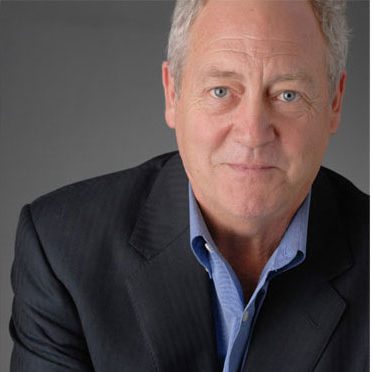Green in Spirit
Published: July, 2006
Green in Spirit
Following his well-documented departure from Greenpeace, organization co-founder Patrick Moore now consults for big business.
By Glen Korstrom
July, 2006
From The Green Edition, Business in Vancouver
Arguably one of the world’s most talked-of environmentalists arrives a little late for an interview in his Yaletown office after battling traffic in his Mercedes-made Smart car.
Busy former Greenpeace Foundation co-founder Patrick Moore is in town for just one day between globetrotting consulting expeditions. Moore is known to many as the activist who switched sides. Moore is unapologetic for changing his mind to support nuclear power. He supports pesticides, chlorine use and salmon farming. He parted ways with Greenpeace in 1986 to promote fish farming and to manage a family fish farm, during which time he served as president of the B.C. Salmon Farmers Association.
He founded Greenpeace Enterprises Ltd. in 1999 in order to provide himself with a corporate entity in which to house his speaking and writing aspirations. In 2002, he co-founded and became a partner in a fast-growing consulting company in Vancouver with a similar name: Greenspirit Strategies Ltd.
Clients include industry giants such as Newmont Mining Corp., Canfor Corp. and Weyerhaeuser Corp. Most of his clients are based in the United States, but he has also helped Vancouver Island’s Pan Fish Canada Ltd.
“They’ve been very good to work with,” Pan Fish Canada’s president and CEO Keith Bullough said of Moore’s operation. “Frequently, when you deal with consultants, the biggest hurdle is educating them about what you do. So, his having that basic knowledge of the industry and being such a strong supporter of the industry was helpful.”
Moore’s upbringing probably made an association with the environment inevitable. Originally from the small hamlet of Winter Harbour on the northwestern tip of Vancouver Island, Moore grew up surrounded by wilderness, and savvy to the economic reality of harvesting nature’s bounty.
Moore’s father operated the W.D. Moore Logging Company Ltd. and was a logger like his father before him. So, when Moore enrolled at the University of British Columbia in 1965, he naturally chose to study forestry. He wound up completing a combined honours B.Sc. in biology and forest biology and having David Suzuki as a professor for two years.
“I became radicalized as a young PhD candidate in ecology,” Moore recalled.
It was during his academic study that he challenged the corporate elite for the first time, with a PhD thesis that focused on a copper mine project.
Moore’s thesis asserted that mine tailings would be carried away by tides and not sink to the bottom of the water. That academic paper spawned a lifelong bent toward challenging conventional wisdom.
Moore read a 1971 newspaper article describing a small group of environmental activists who called themselves the Don’t Make a Wave Committee. They planned to sail a boat to Alaska to stop American hydrogen bomb testing.
He wrote them a letter and they invited him aboard a ship that they would name The Greenpeace.
Shipmates included Jim Bohlen, Bill Darnell, Lyle Thurston, Dave Birmingham, Terry Simons, Richard Fineberg, Bob Keziere, John Cormack, Ben Metcalfe, Bob Cummings and Rod Marining.
The way Moore remembers it, he and Greenpeace co-founder Bob Hunter were the most active of the bunch.
Soon after that first voyage, the group changed its name to the Greenpeace Foundation. Hunter was the group’s president from 1971 until 1977, when Moore took over.
Moore was president until 1979 when the foundation morphed to become Greenpeace International. Moore then became the president of Greenpeace Canada until 1986 when he made his noisy departure.
“When I left Greenpeace, I had been against at least three or four things every day of my life up until them. I wanted to find out what I was in favour of too,” he said.
“I told them, ‘We’re against whaling, sealing, driftnet fishing. We’re against bottom dragging. We’re against nearly every way that people get food out of the ocean’.”
Greenpeace Canada communications coordinator Andrew Male strongly refutes Moore’s critique.
“To suggest that Greenpeace is a bunch of nay-sayers is to misread what Greenpeace is about,” Male said.
Greenpeace supports subsidies for renewable energies, wind energy, solar energy, cogeneration and many other technologies, he added.
“What is frustrating is when his views are pitted against ours as though they are equal voices. In my estimation, they are not.
“His organization, Greenspirit, represents his view and the view of a small organization. Greenpeace is supported by millions of people around the world.”

